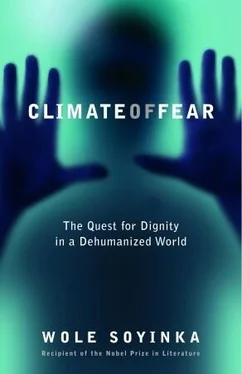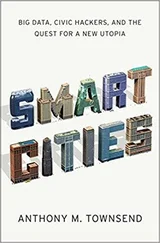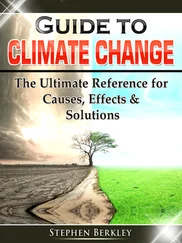There are moments, it must be admitted, when the imperatives of dialogue appear to be foreclosed. Nevertheless, we dare not stop contrasting the dangers of the monologue with the creative potentials of its alternative, the latter holding out a chance of contracting, if not completely dissipating, our climate of fear. Certainly, the proliferation of this frame of mind can slow down the division of the world into two irreconcilable camps, and hopefully prevent such a division from taking permanent hold. Fortunately, a global awareness of the perilous consequences of avoidance is not missing and, thus, provides us with a positive note on which to end, invoking the lessons in contrast between two figures who may be held to personify the two polarities — monologue and dialogue. Both of them, most usefully, are products of the same history, the same religion, the same culture, and the same nation-state. I therefore invite you to accompany me to a milestone event that took place in the United Nations, with its symbolic timing for the end of the last millennium, an event that declared, in ringing terms, that it was time to eschew the sterile monologues of the past and cultivate a new spirit of dialogue, the only prescription that the world knows for the hysterical affliction that belongs to its adversary, the monologue.
The event was the elaborate inauguration of the project Dialogue of Civilizations at the United Nations headquarters in New York, attended by several heads of state, other world leaders, intellectuals, ministers of religion, and so on. There it was that President Khatami of Iran, the main sponsor of the project — in partnership with UNESCO — delivered a most enlightened speech, one that, I am certain, took his audience by surprise. On the minds of most of that audience, including mine, was unquestionably the keen awareness that we were listening to the leader of the same nation that, not quite a decade earlier, had imposed on the world a new era of fear by a unilateral appropriation of the power of life and death over any citizen of our world as it pronounced a death fatwa on the writer Salman Rushdie for his alleged offense against his religion, Islam. A major religion, deservedly classified as one of the world religions, but, just the same, only one of the structures of transcendental intimations, or superstitions, known as religion.
It is not my intention here to pursue the rights and wrongs of the province of the imagination, certainly not my intention to berate or defend a writer accused of disrespect or insensitivity toward religious belief. My concern today is simply to call attention to the contrasting activities of the leadership of that country, Iran, in a truly elevating mission to restore dialogue to its rightful place as an agent of civilizations. Also, it is necessary to remind ourselves that the consequences of that precedent of a global incitement to murder are still very much with us, a poisoned watershed in the relationships between and within nations. It has contributed, to a large extent, to the very condition of global intolerance, bigotry, and sectarian violence to whose dismantling an elected Iranian leader now committed himself in the halls of the United Nations. All over the world, with a frequency, frenzy, and impunity that did not exist before the Salman Rushdie affair, a Friday sermon in a mosque over a real or imagined slight has led to mayhem in normally harmonious communities, in places stretching from Kaduna and the Plateau state in Nigeria to hitherto obscure Indonesian regions such as Aceh. Some may consider this timing a coincidence; if so, it is a coincidence that some of us did anticipate and openly predict at international gatherings.
A dismal instance within my own nation, Nigeria, was that of the deputy governor of a largely Muslim state in the north, Zamfara, who catapulted his boss, for whom he was only a mouthpiece, into international notoriety by this mimic route, pronouncing a killing fatwa on a young journalist. Her crime? A comment that the Prophet Muhammad did not lack an eye for beauty in womanhood. This alleged insult, in addition to claims of provocation in the staging of a Miss World beauty pageant, whose so-called female immodesty a handful of zealots insisted was an affront to their religious sensibilities, led to the destabilization of the country’s capital city, Abuja, and the unleashing of an orgy of death and destruction that stunned the world in its mindlessness and ferocity. Like a number of others around the globe, mine was a nation that, once upon a time, indeed as recently as forty years ago, could offer herself as a model of tolerance, but has suffered, in the intervening period, a spate of religion-motivated violence on an unprecedented scale, and is fast becoming only another volatile zone of distrust, unease, and tension.
We have a duty therefore to use every opportunity to disseminate efforts that counteract such moments of divisiveness and retrogression. President Khatami’s challenge has been taken up in several fora, even to the extent of the emergence of a permanent NGO— Dialogue of Civilizations. Still lacking, however, is a manifest global commitment, especially a sustained and dynamic reciprocity from rival cultures and religions. The word, of course, is “dynamic”—perhaps I should even use the word “aggressive.” The globe needs to be saturated, almost on a daily basis, with such encounters. There have been a number, admittedly, including one in Georgia of the former Soviet Union, under the same rubric as Dialogue; another in Macedonia. Others have taken place within Iran as well. I participated in one in Abuja, Nigeria, in December last year, the scene of the religion-instigated massacre to which I earlier referred.
Sadly, it is within the religious domain that the phenomenon of rhetorical hysteria takes its most devastating form. I am aware that, in some minds, this tends to be regarded as a delicate subject. Let me declare very simply that I do not share such a sentiment. There is nothing in the least delicate about the slaughter of innocents.We all subscribe to the lofty notions contained in the Universal Declaration of Human Rights but, for some reason, become suddenly coy and selective when it comes to defending what is obviously the most elementary of these rights, which is the right to life. One of my all-time favorite lines comes from the black American poet Langston Hughes. It reads, simply, “There is no lavender word for lynch.” Now, that is one line I would not mind converting to the service of rhetorical hysteria. It leaves no room for the continuation of the culture of impunity currently enjoyed by sacred but unholy cows.
Our experiences in Nigeria — shared by numerous others — testify to the frequency of the lamentable conversion of the mantra of piety to the promotion of the most hideous form of impiety, which, in my catechism, translates as the slaughter of other human beings in the cause of religious or any other conviction. For those of us who grew up in an atmosphere where the first dawn sounds that lulled one out of sleep were the sounds of the muezzin — the jarring loudspeakers had not yet been co-opted — calling his flock to the first prayer of the day, soon to be intermingled with the chant of the Christian creed from the catechist’s household next door, it is an agonizing reversal to watch the faces of fanatics slavering after blood under the mandates of those same incantations. Those of us who are unlikely ever to be found intoning, either alone or amidst a congregation, those familiar spiritual calls such as Praise Jesus, Hallelujah, Allah akbar, Hare Krishna, and so on should at least be permitted to retain whatever memories we have of these religions in their nonaggressive states, share the inspirational value that others clearly derive from them, and indeed continue to nurse even a fragmented faith in their potential for human regeneration. But we also have a duty to challenge a general reluctance to inquire why the adherents of some religions more than others turn the pages of their scriptures into a divine breath that fans the random homicidal spore to all corners of the world. Political correctness, itself an immobilizing form of hysteria, forbids the question, but, for those of us who prefer politically incorrect discourse to politically correct incineration or other forms of complicity in our premature demise, this question must be given voice: just what is it that turns the mantra of a beatific chant of faith, such as Allah akbar, into a summons to an orgy of death? Why did Martin Scorsese’s The Last Temptation of Christ arouse violent reactions, condemnations, and exhortations to boycotts, as has more recently Mel Gibson’s The Passion of the Christ, but not a universal outcry for the murder of the cinéastes, or of those who dared participate in these interpretative exercises?
Читать дальше












